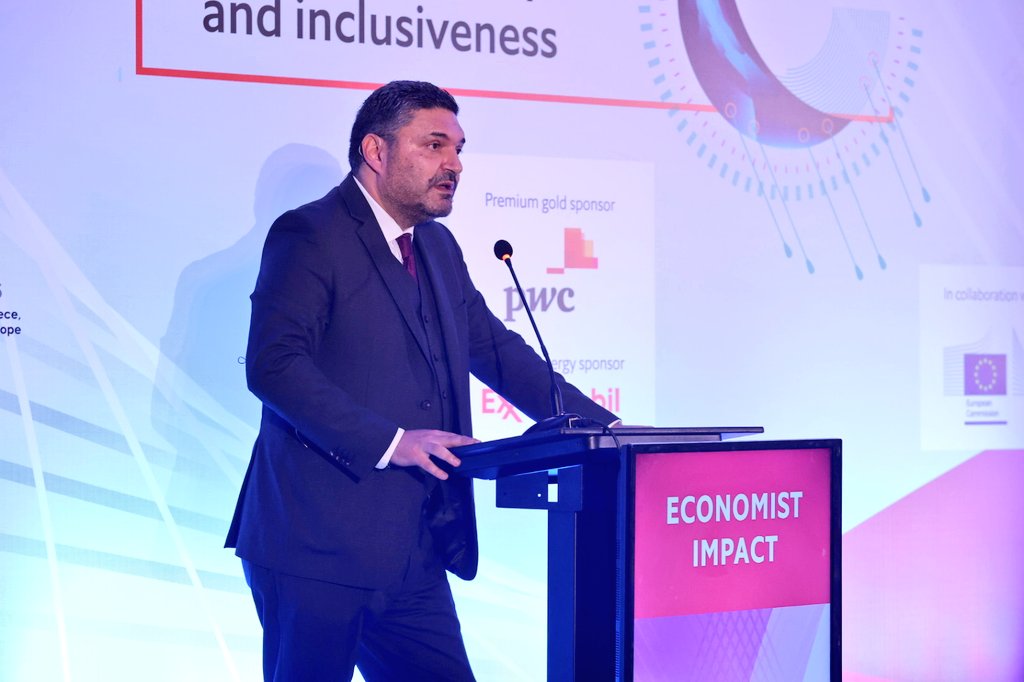A prudent fiscal stance is necessary to maintain buffers to enable government support to the vulnerable during the current energy crisis, warned Finance Minister Constantinos Petrides.
“In this new era, we should take the sustainability of public finances very seriously…because spending will be necessary to support the vulnerable hit by the energy crisis,” Petrides told the Economist Summit.
He said “wrong policies fuelled by populism” were made in other countries, recalling adverse market reactions to tax-cutting decisions in the UK.
“From now on, we should expect extreme market reactions, which would punish us if we don’t proceed with prudence and consistency”.
Highlighting the importance of fiscal sustainability, Petrides said the government increased development expenditure sharply and supported the vulnerable but delivered fiscal surpluses and public debt below 90% GDP, while Cyprus is the only country to receive rating upgrades.
“A few months before the elections, the easiest thing for a finance minister and the government would be to channel some hundreds of millions for the sake of populism and the election campaign.
“We didn’t do that; we provide support where necessary, we deliver a robust economy, and the main tool for the coming government will be fiscal (buffers), and we hope it will manage with the same prudence.”
He said growth recorded in Cyprus was not by chance, becoming a hub attracting foreign technology companies.
“Policy should be characterised by consistency, a growth vision, and prudence in fiscal management because the coming years will be very difficult.”
He said the government would not be submitting a green tax and called for the revision of the EU green transition.
“We decided not to submit a green taxation by the end of the year, and I believe that on a European level, the green transition should be revised to reduce the consequences of high energy prices,” Petrides said.
Buffers
Wim van Aken, the European Stability Mechanism’s head of mission for Cyprus, also stressed the importance of maintaining fiscal buffers as the economy is slowing due to the war in Ukraine.
He noted that the government had extended support, which was contained and cautious, contributing to the significant improvement of Cyprus’ fiscal position.
“Focusing on tailored temporary support for more vulnerable groups of the society will ensure sufficient fiscal buffers remain in place to mitigate the impact of expected economic slowdown and future economic shocks that we don’t know yet.”
Philippos Soseilos, the CEO of audit firm PwC was optimistic that Cyprus, with its small and open economy, would weather the crisis as it did in 2013 and during the pandemic.
“The realisation for us in Cyprus is that our small size as an economy is indeed a great strength in terms of resilience, and our extrovert nature and ability to continue to be connected with the outside world provides us with that bounce back possibility.”
Andreas Assiotis, Head of Retail banking at Hellenic Bank, said that as stagflation risk rises, “fiscal policies should strike the right balance between supporting the monetary stance and protecting vulnerable households.”
“Only nations with long-term planning orientation looking for ongoing reforms which ensure resilience to adapt to unexpected events can successfully navigate through such unprecedented times.”










